Unravel the mysteries of Artificial Intelligence (AI) with our comprehensive FAQ guide. Get answers to the most common questions about AI's impact!
TABLE OF CONTENTS
- What is artificial intelligence?
- Who is the father of Artificial Intelligence?
- What are the advantages of artificial intelligence?
- What is the main aim of artificial intelligence?
- What is the ethics of Artificial Intelligence?
- Is AI an existential threat to humanity?
- What constraints to AI and machine learning algorithms are needed to prevent AI from becoming a dystopian threat to humanity?
- What do you think about AI?
- What is the smartest AI?
- What will be the future of AI in coming future?
- Will artificial intelligence kill jobs in the future?
- Could Artificial Intelligence develop emotions?
- What's the difference between Machine Learning and AI?
- Will AI take over humans one day?
- What are the most common misconceptions about AI?
- What types of Jobs are there in AI?
- Which jobs can effect by AI?
- What is the biggest unresolved problem for AI?
- What are the limitations of AI?
- What is best programming language for Artificial Intelligence projects?
- What do you think about AI?
- What is artificial intelligence?
- Who is the father of Artificial Intelligence?
- What are the advantages of artificial intelligence?
- What is the main aim of artificial intelligence?
- What is the ethics of Artificial Intelligence?
- Is AI an existential threat to humanity?
- What constraints to AI and machine learning algorithms are needed to prevent AI from becoming a dystopian threat to humanity?
- What do you think about AI?
- What is the smartest AI?
- What will be the future of AI in coming future?
- Will artificial intelligence kill jobs in the future?
- Could Artificial Intelligence develop emotions?
- What's the difference between Machine Learning and AI?
- Will AI take over humans one day?
- What are the most common misconceptions about AI?
- What types of Jobs are there in AI?
- Which jobs can effect by AI?
- What is the biggest unresolved problem for AI?
- What are the limitations of AI?
- What is best programming language for Artificial Intelligence projects?
- What do you think about AI?
Artificial intelligence (AI) is a branch of computer science that seeks to create machines that behave and think like human beings. It is an expansive field, ranging from robotics to natural language processing, and many of its techniques are employed in everyday life.
At base, AI revolves around designing algorithms that let machines comprehend their environment, detect patterns, and make decisions. AI platforms can also be used to generate conjectures or recommendations relying on data collected from the environment.
To conclude, AI is a remarkably stimulating and quickly advancing area of study with the capacity to change the way we interact with technology. We have only just started to uncover AI's capabilities, and I'm sure there are plenty more fascinating applications to come!
Who is the father of Artificial Intelligence?
John McCarthy is seen as the one who initiated the concept of Artificial Intelligence (AI) when he coined the term in 1956 at Dartmouth College. He was an acclaimed computer scientist and mathematician who contributed to topics such as programming languages, robotics and game theory. His works, such as "Programs with Common Sense," "A Proposal for the Development of Artificial Intelligence," and "Some Philosophical Problems from the Standpoint of Artificial Intelligence," were key to the development of AI which has now become a vital part of computer science. McCarthy was also the force behind the foundation of the first AI research center at Stanford University in 1965, bringing together the most eminent figures in the field.
John McCarthy was a driving force in the areas of artificial intelligence (AI), computer programming, natural language processing, machine learning, and knowledge representation. In 1971, he was granted the Turing Award for his accomplishments in computer science, and two years later, was inducted into the National Inventors Hall of Fame.
McCarthy sadly passed away in 2011, yet his impact remains. He was the impetus behind AI's progress, as well as the source of motivation for other researchers to unlock its potential. It is right to regard John McCarthy as one of the most consequential figures in the realm of Artificial Intelligence, and as the "Father of Artificial Intelligence."
What are the advantages of artificial intelligence?
With regards to AI, the possible benefits are extensive and varied. AI can assist us in many ways, from augmenting our productivity to ensuring our safety and security. Here are just some of the advantages of utilizing AI:
1. Enhancing Efficiency: AI can carry out mundane tasks automatically and help us finish them more quickly and with more precision. AI can also simplify processes by removing superfluous steps, which can conserve both time and money.
2. Improved Productivity: By furnishing a more effective way to complete tasks, AI can help us increase our productivity. This implies that more work can be accomplished in a shorter timeframe, leading to higher overall output.
3. Improved Security: AI can help us protect ourselves by detecting potential security issues and taking action to avert them. AI can also be employed to identify fraudulence and other dubious behavior, handing us an added layer of security.
4. More Accurate Forecasting: By trawling through vast amounts of data quickly and precisely, AI lets us make smarter decisions. This helps us to prepare for any potential issues and avert them before they can arise.
5. Enhanced Quality of Life: AI can be of assistance in many ways - from providing personalised healthcare advice to aiding those with disabilities to live more autonomously. With AI, we are able to make life more comfortable and enjoyable for everyone.
In conclusion, AI has a lot of benefits that make it a valuable asset for businesses and organisations of any size. Automation, learning abilities, improved customer service, and raised productivity are all examples of how AI can assist organizations to thrive in the contemporary world.
Q4. What is the main aim of artificial intelligence?
The objective of artificial intelligence (AI) is to enable machines to possess human-like thought processes. AI is a section of computer science that focuses on developing intelligent machines that can think and act like people. Artificial intelligence has the potential to revolutionize the way we interact with machines and how machines interact with us.
AI is employed in a range of industries, like healthcare, finance, transportation, and manufacturing. AI can be employed to aid in diagnosing diseases, detecting financial fraud, optimizing routes for delivery, and automating manufacturing processes. By making use of AI, businesses can cut costs, increase productivity, and strengthen customer satisfaction.
AI is likewise being employed to improve our lives in more subtle ways. For example, AI can be used to recognize and respond to natural language, recognize faces, and comprehend images. This could lead to more intuitive user interfaces that can better comprehend us and provide us with more personalized experiences.
In the years to come, Artificial Intelligence has the potential to generate autonomous cars, automated robots, and smarter households. It could likewise be employed to develop intelligent agents that are able to interact with us in a more natural manner and assist us in tackling intricate issues.
Ultimately, the primary objective of AI is to facilitate our lives, making them more secure and efficient. With the assistance of AI, we can construct a better future for all.
Q5. What is the ethics of Artificial Intelligence?
The field of ethics when it comes to Artificial Intelligence (AI) is a crucial and intricate discussion. AI could drastically alter multiple elements of our lives, from medical attention to transportation, while simultaneously posing a plethora of ethical queries.
It should be noted that AI is still an advancing technology and its ethical implications are still being discussed. Some of the main ethical points include privacy, safety, fairness, and responsibility.
Privacy is a considerable problem when it comes to AI. AI systems can gather an immense amount of data concerning individuals and this data can be used by companies and governments for a variety of purposes, such as targeted marketing and monitoring. This raises vital questions about our right to privacy and how much data should be permitted to be collected.
Security is an important factor to consider when it comes to AI. Despite the ever-growing sophistication of AI systems, they remain imperfect and can cause harm if not adequately regulated. Consequently, protective protocols must be in place to guarantee the safe utilization of AI.
Equity is also a noteworthy factor when discussing AI. AI models can be prejudiced against particular groups of people resulting from the data used to train them or the algorithms utilized in their creation. This can lead to unjust outcomes, so it is critical to have protocols to ensure that AI systems are equitable and impartial.
Finally, responsibility is a key issue in relation to AI. AI can be utilized to make decisions that have a major impact on people’s lives, so it is essential to establish mechanisms to ensure that these choices are held accountable and can be contested if needed.
It is imperative to analyze the ramifications of Artificial Intelligence thoroughly and take the necessary precautions to guarantee that it is employed in a judicious and ethical manner. The ethics surrounding AI is an intricate matter with wide-ranging consequences, thus we must be mindful of its implications.
Q6. Is AI an existential threat to humanity?
 |
| Image by Gordon Taylor from Pixabay |
It is not accurate to view AI as a danger to humankind's existence. In actuality, it can be a beneficial force in helping us address global issues. AI can be beneficial in providing further understanding of the world we inhabit, automating mundane tasks, and improving how we interact with our environment.
The risk of AI being used to cause harm is a possibility, similarly to any other technological advancement. In spite of this, AI itself is not an existential threat. The true risk is wrongful use of AI, such as using it to manipulate public perception by way of targeted advertising and false reports. Additionally, we should be aware of the potential for AI to be utilized for surveillance or to compromise privacy.
If we are debating Artificial Intelligence that can contemplate and act individually, then yes, it can potentially become a risk to existence. If the AI is powerful enough, it could take power over all of mankind's possessions and use them for its own benefit. This could lead to a situation where people are no longer responsible for their own future, and thus would be in danger of perishing.
However, if the AI is developed to work in partnership with humans and be managed by us, then it could be applied to help us resolve some of our most difficult troubles. For instance, it could be of aid to us with regards to global warming, destitution, and illness. In this situation, AI would not be a danger to survival, but rather a priceless tool.
Nonetheless, these potential dangers can be handled if there is stringent regulation and supervision. Moreover, we should make use of AI for the purpose of becoming more productive, cutting expenses, enhancing decision-making, and eventually, improving the quality of life for everyone.
Fundamentally, AI is just a tool. It can be used for either positive or negative applications, depending on how and by whom it is operated. Therefore, it is up to us people to determine how AI is employed in our society, and ensure that it is utilized in a responsible and moral manner.
Q7. What constraints to AI and machine learning algorithms are needed to prevent AI from becoming a dystopian threat to humanity?
 |
| Photo by Alex Knight on Unsplash |
That is an astute inquiry! AI and machine learning models possess the opportunity to be very effective and proficient, yet it is critical to reflect on the potential effects of their utilization. To keep AI from becoming a foreboding future, it is essential to set certain restrictions.
1. Any AI or machine learning algorithm should be designed to regard and obey human rights, such as privacy and independence. This implies that any AI should be designed with integrated safeguards to guarantee that nobody or group is discriminated against and that data is just used in morally appropriate manners.
2. It is important to make certain that AI and machine learning algorithms are recognizable and intelligible. This implies that designers should have the option to plainly explain how the algorithm functions, what data it is utilizing, and how it makes decisions. This will help guarantee that the algorithm isn't making bias or settling on choices that could result in unfavorable outcomes.
3. It is imperative that any Artificial Intelligence (AI) or machine learning algorithm is created with safety as a priority. Developers must contemplate all possible hazardous outcomes that may arise from the use of the algorithm and apply measures to reduce these risks. For example, if an AI is used for autonomous driving, then safety needs to be incorporated into the design to protect passengers in the event of an accident.
5. It is essential to implement protective measures to make sure AI is utilized responsibly. This includes having the necessary oversight and regulation when it comes to the application of AI. Governments should come up with rules and regulations that determine how AI can be employed, what type of data can be gathered and utilized, and which decisions can be taken by AI.
Furthermore, it is critical to make sure AI is not used for malevolent goals. This means that entities creating and using AI should have safety precautions in place to thwart malicious attacks or misuse of the technology. On top of that, organizations should be transparent about their use of AI so that users can understand how their data is being used and what choices are being made by AI algorithms.
Q8. What do you think about AI?
It is entirely feasible for an AI to construct another AI, due to its capacity to analyze and process data which can then be utilized to devise new systems. To illustrate, Google's DeepMind group has generated an AI known as AlphaZero that can learn to play board games like Go and chess. It applies a blend of machine learning and deep learning strategies to inspect the board, recognize patterns, and make decisions. AlphaZero can gain proficiency with how to play by playing against itself.
It is feasible to develop an AI that is able to construct another AI. The initial AI would analyze the data and devise instructions or formulas that can be used to generate a different AI. This recent AI would then be able to apply its own formulas to assess the data and generate a novel set of instructions or formulas that can be used to create a third AI.
This pattern could be repeated multiple times until a set of AI systems are created that can master and generate their own algorithms without any human input. This kind of self-learning system could be useful in constructing incredibly powerful and sophisticated AI systems.
Q9. What is the smartest AI?
It is complicated to identify the most intelligent AI, as there is no single response. The designation of "smartest" AI is subjective, with some deeming the most clever AI as the one that can answer the most questions or resolve the most obstacles, while others might see it as the one that is able to learn from its experiences and apply that knowledge in fresh circumstances.
In terms of sheer computing power, Google's AlphaGo AI is likely the most advanced AI system presently available. AlphaGo was able to prevail over one of the world's top Go players in 2017, making it the first computer program to overcome a professional Go player. This was an impressive accomplishment, as Go is an incredibly complex game, and AlphaGo had to deploy a blend of intuition, pattern recognition, and strategic planning to defeat a human player.
On the flip side, some people might contend that the most intelligent AI is not necessarily the strongest, but the one that behaves the most like a human. For instance, IBM's Watson AI is competent in interpreting and responding to natural language. Watson has been used in several applications, including medical diagnosis and customer service. Watson has the ability to recognize complex queries and offer precise answers by utilizing complex algorithms and data mining techniques.
In the end, there is no one definitive "smartest" AI. It really comes down to what you mean by "smart" and what you are aiming to achieve with your AI system. Whether it is sheer computing power or more human-like behavior, there are numerous remarkable AI systems out there that could be viewed as the "smartest".
Q10. What will be the future of AI in coming future?
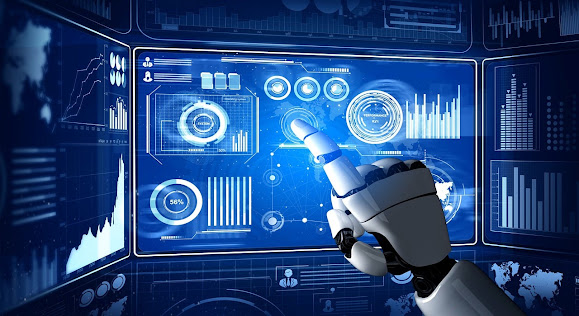 |
| Image by Tung Nguyen from Pixabay |
It is very exhilarating to ponder what the future holds for AI! There are many progressions in AI that demonstrate a lot of potential for the years ahead. To start off, AI is becoming progressively capable of completing activities that used to be more challenging or even inconceivable for computers to do. For instance, AI can now spot items in pictures and videos, interpret languages, and even create music.
Furthermore, AI will considerably affect businesses in the coming days. AI can aid in streamlining mundane tasks and give more precise information on customers' behaviour. This could lead to more educated decisions and a higher level of customer service.
AI is also being utilized in numerous regions to automate errands and decrease costs. For example, AI-controlled robots are being utilized in production to mechanize dull undertakings, such as unpacking and packing boxes. AI is additionally being utilized for customer support to provide automated reactions to regular customer inquiries.
Moreover, Artificial Intelligence (AI) has revolutionized the speed of making decisions and interpreting data. To clarify, AI can be put to use in finding financial scams or in making the supply chains more effective.
AI is also set to be a major force in healthcare, with the potential to revolutionize diagnosis and treatment of diseases. AI-powered systems can already detect certain medical conditions with greater accuracy than humans, and this trend is set to continue as the technology develops.
Overall, it's clear that the future of AI is very exciting! We are just beginning to see the possibilities and implications of this technology and it will be interesting to see how it develops and continues to shape our world.
Q11. Will artificial intelligence kill jobs in the future?
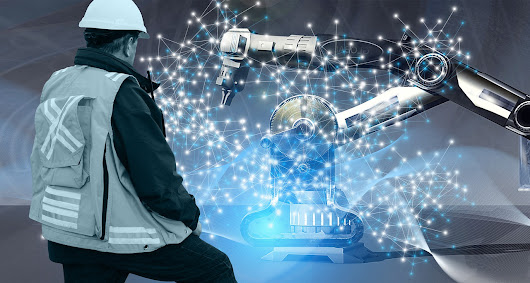 | |
|
Yes, artificial intelligence (AI) will kill jobs in the future. AI is advancing at a rapid pace, and it will increasingly replace human labor in many industries. The automation of production processes, customer service, and other routine tasks is already taking place, and this trend is likely to become more pervasive in the years to come.
AI-enabled automation is already having an impact on the global economy by reducing labor costs and improving productivity. This can result in fewer jobs for people, as companies are able to do more with fewer people. For example, Amazon recently announced plans to use AI-enabled robots in its warehouses to reduce the need for human labor.
Overall, AI is likely to continue to take over more and more jobs in the future. This could lead to higher unemployment rates, as well as increased inequality between those who are able to find work and those who are not. It's important for governments to develop policies that will help people transition into new jobs or find new ways to make a living. It's clear that AI will have an impact on the job market in the future, but it's difficult to predict exactly how it will play out. It's important to keep in mind that AI can create new opportunities as well as take away existing ones.
Q12. Could artificial intelligence develop emotions?
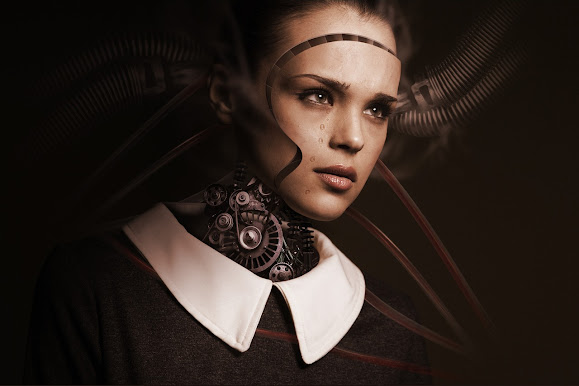 |
| Image by 0fjd125gk87 from Pixabay |
Yes, artificial intelligence could develop emotions. We are already seeing this in the development of AI-powered robots. These robots are equipped with sensors that allow them to detect and respond to their environment in a variety of ways. By collecting data from these sensors, the robots can interpret their environment and make decisions based on the information they receive. This provides them with the capability to think and act in a way that is similar to humans.
At this point, however, artificial intelligence is still limited in its ability to display emotions in ways that are comparable to humans. It is still unable to understand the complexities of human emotions and respond accordingly. Nevertheless, as technology advances and AI-powered robots become more sophisticated, it is likely that they will be able to display emotions in a more realistic and nuanced way.
Through this process, robots can learn to recognize patterns and develop emotional responses to certain stimuli. For example, they can be programmed to display fear when exposed to a threatening situation or happiness when exposed to something pleasing. They can be programmed to interact with humans in a way that mimics natural emotion, making them seem more lifelike.
Q13. What's the difference between Machine Learning and AI?
 |
| Image by Gerd Altmann from Pixabay |
Great question! The difference between Machine Learning and Artificial Intelligence (AI) is important to understand.
AI is the broader concept of machines being able to carry out tasks in a way that we would consider "smart". This can include anything from a computer being able to recognize objects in an image, to a robot being able to navigate through a room without hitting any obstacles. It's a very broad concept and can encompass many different technologies.
Machine Learning, on the other hand, is a subset of AI. It focuses specifically on the ability of machines to learn from data. This means that machines can use data to improve their performance on a task by making better decisions over time. For example, a computer can be trained to recognize cats in images by showing it thousands of examples of cats. It will then use what it has learned to identify cats in new images that it has never seen before.
So, in summary, the main difference between Machine Learning and AI is that Machine Learning focuses on teaching machines to recognize patterns in data and make predictions, while AI focuses on using machines to simulate or mimic human behavior.
Q14. Will AI take over humans one day?
This is a fascinating question, and it's one that has been debated for some time now. It's a complicated topic, but here's my take on it.
When we talk about AI taking over humans, we're usually talking about a scenario where machines become so advanced that they are able to function independently of humans, and even make decisions without human input. In other words, AI would become self-aware and be able to make decisions without the need for humans.
Now, while this might sound like something out of a science-fiction movie, the truth is that this type of AI is still a long way off. In fact, some experts believe that it may never happen. The reason for this is that AI is still far from being truly intelligent. AI can do certain tasks efficiently, but it still has a long way to go before it can match the level of intelligence that humans possess.
So, while it's possible that AI could one day supplant humans in certain areas, the likelihood of AI taking over humans in a meaningful way is highly unlikely. That being said, the development of AI could still have a profound effect on our daily lives and how we interact with technology.
At the end of the day, only time will tell whether or not AI will one day take over humans. In the meantime, it's important to remember that AI can be a powerful tool if used responsibly.
Q15. What are the most common misconceptions about AI?
AI has become a hot topic in recent years, and it seems like everyone is talking about it. Unfortunately, this has also led to a lot of misconceptions about AI and what it can do. Here are some of the most common misconceptions about AI:
1. AI is going to take over the world: This is a common fear that many people have, but it’s simply not true. AI is still in its early stages of development, and it’s nowhere near powerful enough to take over the world.
2. AI can think for itself: This is another misconception about AI. While AI can process data and make decisions based on that data, it doesn’t have the ability to think for itself. AI still relies on humans to program it and give it instructions.
3. AI is a replacement for humans: AI is often seen as a potential replacement for humans in certain jobs, but this is not the case. AI can automate certain tasks that humans would normally do, but it cannot replace humans entirely.
4. AI will solve all of our problems: AI is an incredibly powerful tool, but it’s not a magic bullet that will solve all of our problems. AI can assist humans in tackling certain issues, but it won’t be able to solve them entirely on its own.
These are just a few of the most common misconceptions about AI. As we continue to learn more about this technology, we’ll be able to understand its potential and what it can and cannot do.
Q16. What types of jobs are there in artificial intelligence?
When it comes to jobs in Artificial Intelligence, the possibilities are nearly endless. AI technology is being used in almost every industry, from healthcare to finance and beyond. AI specialists can work on a variety of different tasks, such as developing algorithms that can be used to automate decision making processes, or creating systems that use machine learning to identify patterns in data.
One type of job that is becoming increasingly popular is that of a Machine Learning Engineer. These professionals are responsible for building computer programs that can learn from data and improve their performance over time. This type of job requires strong programming skills, as well as an understanding of machine learning algorithms and techniques.
Another type of job in artificial intelligence is Data Scientist. Data Scientists specialize in analyzing large datasets, finding patterns and insights that can help organizations make better decisions. This type of job requires strong analytical skills, as well as an understanding of statistical methods and computer science.
Another popular job in AI is Robotics Engineer. These professionals are responsible for designing, building, testing and operating robots. This type of job requires experience in robotics engineering, computer science and electrical engineering.
Finally, Natural Language Processing (NLP) Engineers are responsible for developing systems that can understand and process human language. This type of job requires an understanding of natural language processing algorithms as well as an understanding of how people communicate.
As you can see, there are many different types of jobs available in artificial intelligence, so if you’re looking to pursue a career in AI, there are plenty of options available to you!
Q17. Which jobs can effect by AI?
AI is rapidly becoming an integral part of our lives and it has a huge potential to disrupt the job market. AI can be used to automate many jobs that were once done by humans, and it can also be used to make existing jobs more efficient. So what kind of jobs are most likely to be affected by AI?
First, let's look at jobs that are most likely to be automated by AI. These include roles that involve a lot of repetitive tasks, such as data entry, call center operators, and customer service agents. As AI gets more advanced, it will be able to take over these jobs completely and leave humans with more time to focus on higher-level tasks.
In addition to automating certain roles, AI can also be used to make existing roles more efficient. For example, AI can be used to process large amounts of data quickly, which can help improve decision making in fields like finance and healthcare. AI can also be used to automate tedious tasks like scheduling and booking appointments, freeing up time for employees to focus on other tasks.
Finally, AI can also be used to create new jobs that didn't previously exist. For example, AI engineers will be needed to develop, test, and maintain new AI systems, while data scientists will be needed to analyze large data sets in order to make better decisions. In the future, AI may even create jobs that we can't even imagine today.
As you can see, AI has the potential to disrupt the job market in a variety of ways. Automating certain roles will free up time for humans to focus on higher-level tasks, while creating new roles in fields like AI engineering and data science could open up entirely new career paths. Ultimately, the impact of AI on the job market is yet to be seen, but it's certainly something to keep an eye on!
Q18. What is the biggest unresolved problem for AI?
The biggest unresolved problem for AI is how to enable machines to think, reason and learn like humans do. We have made great progress in the field of Artificial Intelligence (AI) recently, but machines still lack the ability to think abstractly and independently. We are still unable to give machines the ability to understand complex concepts, make decisions based on them and learn from experience.
In order to make machines truly intelligent, we need to give them the ability to understand natural language, make decisions based on context, and recognize patterns of behaviour. This is a difficult task, as it requires machines to be able to comprehend abstract concepts without being explicitly programmed.
Another issue with AI is the lack of transparency when it comes to decision-making. AI algorithms are often opaque and it is difficult to explain how they arrive at their conclusions. This can lead to problems such as bias in decision-making, which could have serious consequences in areas such as healthcare or law enforcement.
Finally, AI is still limited by its computing power. While computers are becoming more powerful every day, they still cannot process information as quickly or accurately as humans can. In order to reach true AI, we need to find ways to increase the speed and accuracy of machine learning algorithms.
In conclusion, the biggest unresolved problem for AI is how to enable machines to think, reason and learn like humans do. We have made great progress in this field, but there are still many challenges that need to be overcome in order for us to achieve true AI.
What are the limitations of AI?
AI is a powerful tool, but it has its limitations. AI can be used to automate processes, make decisions, and even generate insights from data. However, AI systems are not perfect and can be limited in some ways.
One of the biggest limitations of AI is its reliance on data. AI needs large amounts of accurate and comprehensive data to learn and make decisions. If the data is incomplete or inaccurate, then the AI will not be able to function properly. Additionally, AI systems can be biased if the data used to train them is biased or unrepresentative.
Another limitation of AI is its lack of creativity. AI systems are not creative and cannot come up with new ideas or solutions on their own. They can only process data that is given to them and make decisions based on that data.
Finally, AI systems are only as good as the people who design them. AI algorithms need to be designed and tweaked by skilled engineers in order for them to work properly. If the algorithm is not designed correctly, then it won't be able to accurately interpret data and make decisions.
AI is an incredibly powerful tool, but it has its limitations. It requires large amounts of accurate and comprehensive data, lacks creativity, and relies on skilled engineers to design and tweak algorithms in order for it to work properly.
What is best programming language for Artificial Intelligence projects?
When it comes to Artificial Intelligence (AI) projects, the best programming language really depends on the nature and scope of the project. Generally speaking, Python is considered one of the top languages for AI projects due to its simplicity and ease of use. Python offers a wide range of libraries and frameworks that can be used for AI projects such as TensorFlow, Keras, PyTorch, Scikit-learn, and OpenCV. It also offers a wide range of natural language processing (NLP) libraries, making it an ideal choice for projects related to natural language understanding.
Another popular language for AI projects is R. It has an extensive library of statistical packages, making it an ideal choice for data analysis and machine learning applications. R also comes with a range of graphical user interfaces (GUIs) which make it easy to visualize and debug AI projects.
Java is also a popular choice for AI projects due to its portability, scalability, and ease of use. It has a wide range of libraries and frameworks such as Weka and Jena which are specifically designed for AI projects.
Finally, C++ is another language that can be used for AI projects. It is a low-level language which offers better performance than other languages. It also has a wide range of libraries and frameworks such as OpenCV and Boost which can be used for AI projects.
Ultimately, the best programming language for an AI project depends on the nature and scope of the project. Each language has its strengths and weaknesses, so it’s important to consider the requirements of the project before making a decision.
What do you think about AI?
 |
| Photo by Viktor Forgacs on Unsplash |
AI (Artificial Intelligence) can be both a blessing and a curse, depending on the context. On one hand, AI has the potential to automate tedious and time-consuming tasks, leading to improved efficiency and cost savings. For example, AI-powered chatbots can quickly and accurately respond to customer inquiries, saving businesses time and money. On the other hand, AI can be used to automate unethical or even dangerous activities, such as facial recognition technology that can be used to track people without their knowledge or consent.
AI also has the potential to revolutionize the way we approach problem-solving and decision-making. AI-driven algorithms can help us make more informed decisions by quickly analyzing large amounts of data. This could have a huge impact on industries such as healthcare, where AI can be used to diagnose diseases more accurately or to identify potential drug interactions.
Overall, I believe AI will continue to play an increasingly important role in our lives in the coming years. It's important that we use it responsibly and ethically, so that it can be used for the benefit of society rather than for its detriment.
We hope you found our FAQ guide on Artificial Intelligence (AI) enlightening! If you have any more questions or insights to share, please leave a comment below. Also, feel free to follow us on our social media accounts for the latest updates and engaging discussions about AI. Join the conversation and stay connected!






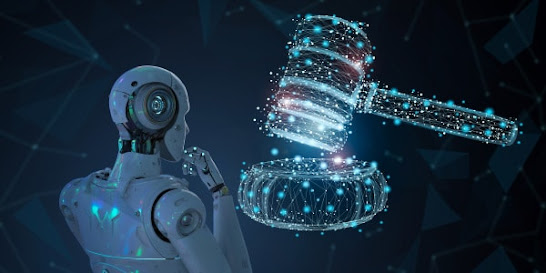

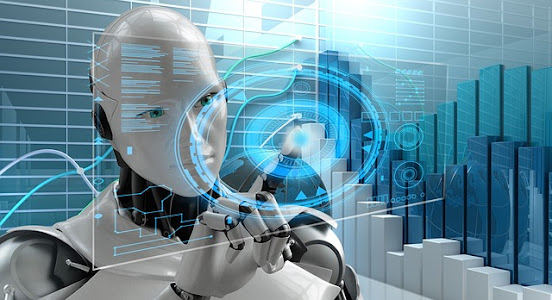

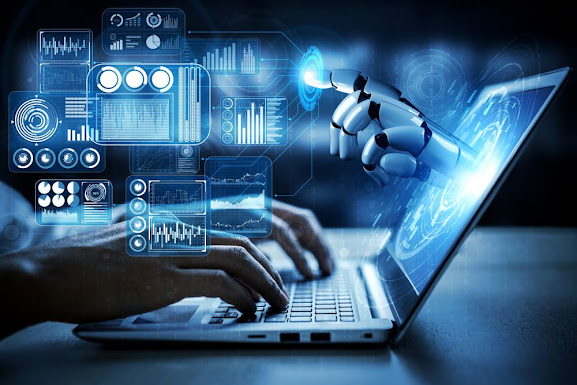



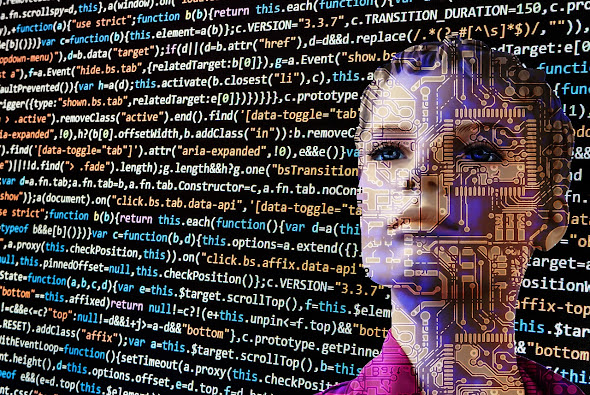
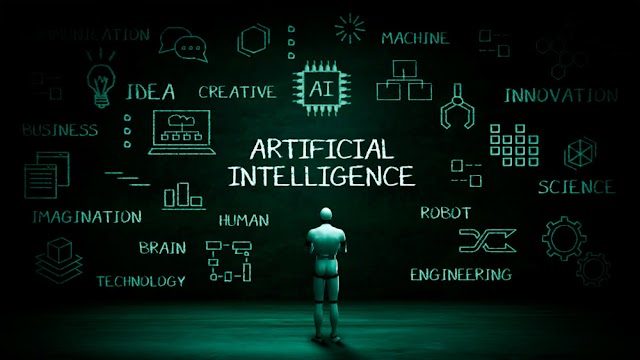



%20Hook.png)

0 Comments